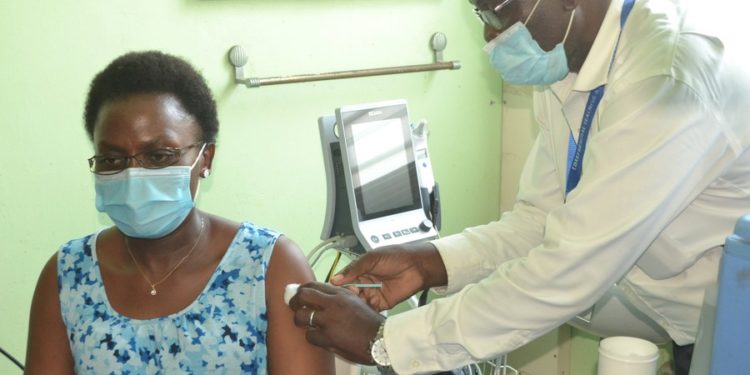Africa is still the region most economically afflicted by the global health crisis. The pandemic has wiped out millions of jobs, created social vulnerabilities and pushed an estimated additional 114 million people back into absolute poverty. Africa’s economic growth prospects have equally dwindled, with projected 3.4 percent GDP growth for 2021, compared with 6 percent globally.
The high-level meeting in mid-May by the United Nations Security Council, at the urging of China, to address Africa’s double challenge of conflict and post-COVID-19 economic reconstruction was a step in the right direction.
Only 1.5 percent of Africa’s population has so far been vaccinated with a first dose, compared with 35 percent in Europe and 52 percent in North America, according to the UK-based nonprofit Our World in Data. With Africa’s fatality rate at 2.7 percent compared with the global 2.2 percent, John Nkengasong, the director of the Africa Centres for Disease Control and Prevention, has warned that the pandemic situation on the continent could worsen.
The pandemic also unfolded against the backdrop of multiple intracountry and cross-border conflicts that already were threatening peace, stability and development across Africa. With the debilitating impacts of the pandemic playing out in resource-deprived regions of the continent, the world could witness even further erosion of peace and stability.
China’s comprehensive approach to peace and security holds much relevance for Africa.
In the continent’s situation, internal volatility and instability, which often call for government response by the police or military could be fueled by despair as a result of joblessness, poverty and corruption, and such challenges cannot be sustainably addressed through hard power. Carefully designed economic empowerment could be the key to resolving such conflict.
Beyond the traditional conceptualization of national security, new threats like cybercrime, climate change, pandemics and violent extremism require novel approaches grounded in progressive and inclusive forms of international relations, such as multilateralism. States can’t act in compartments. They must be willing to reach out to each other as a way of generating solutions to the cross-border challenges that currently afflict the world.
That is why the new Partnership for Africa’s Development recently launched by China and Africa is important. The initiative seeks to move beyond the traditional conceptualization of peace and security into a holistic approach that seeks to resolve root causes of conflict while powering development on the continent.
External actors must be willing to listen to African voices and contribute to the search for the intrinsic and endogenous solutions to the challenges facing the continent, spanning governance, economics and politics.
Regarding the COVID-19 pandemic, China has extended substantial support to the continent. Beijing has marshaled an all-of-society approach to offer not just epidemic control experience, but also massive donations and direct purchases of the essential medical supplies needed to counter the disease in Africa. China has also followed up on its commitment to assist African countries in managing economic difficulties through loan restructuring and debt cancellations, in addition to making its vaccines available to the continent.
Only inclusive development can cement the foundation for post-pandemic economic recovery and for lasting peace and stability in Africa. Chinese enterprises on the continent have continued to operate even in the face of the pandemic. This has not only enabled completion of projects crucial to Africa’s productive sectors; many young Africans engaged by the companies have also enjoyed continued employment at a time when millions of jobs have been wiped out by the global health crisis.
China is setting a good precedent that can be emulated by other development partners to assist the continent in navigating the difficult terrain brought by the pandemic and forging a new path to socioeconomic progress.
Beyond access to vaccines, targeted investments that can spur job and wealth creation across Africa are also needed. Africa has proved to be a rational business case for partners who have successfully decoded the continent’s potential.









